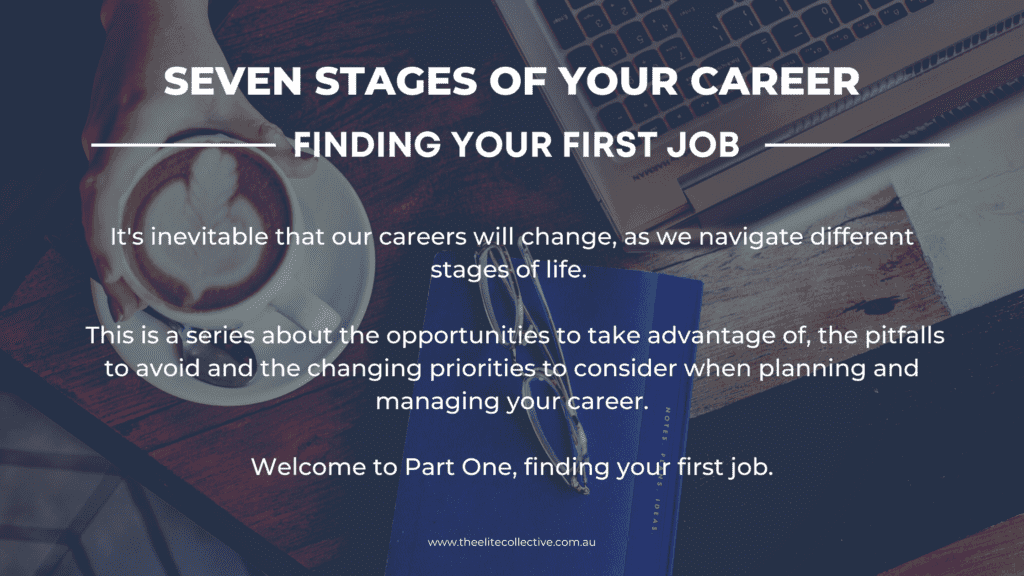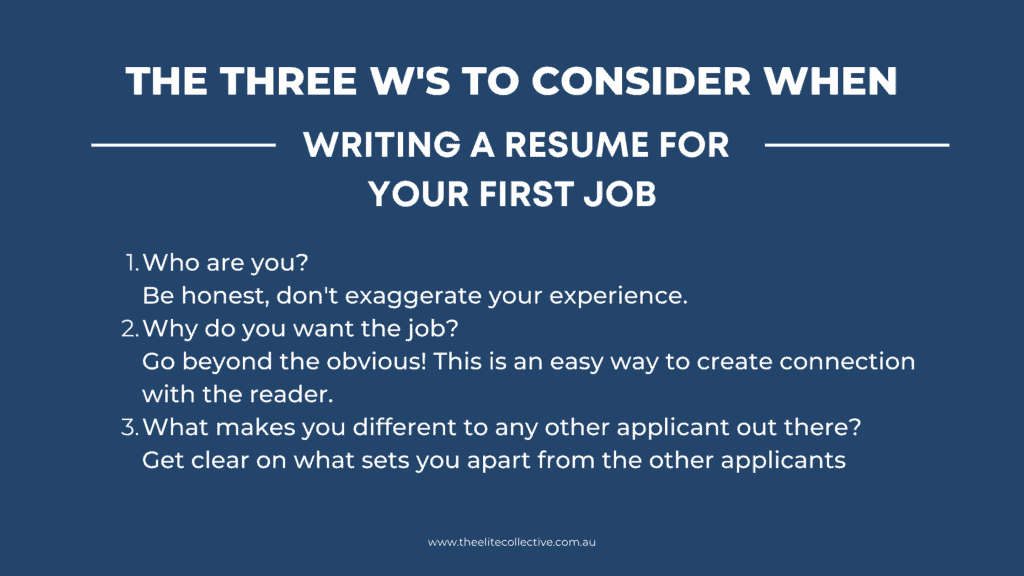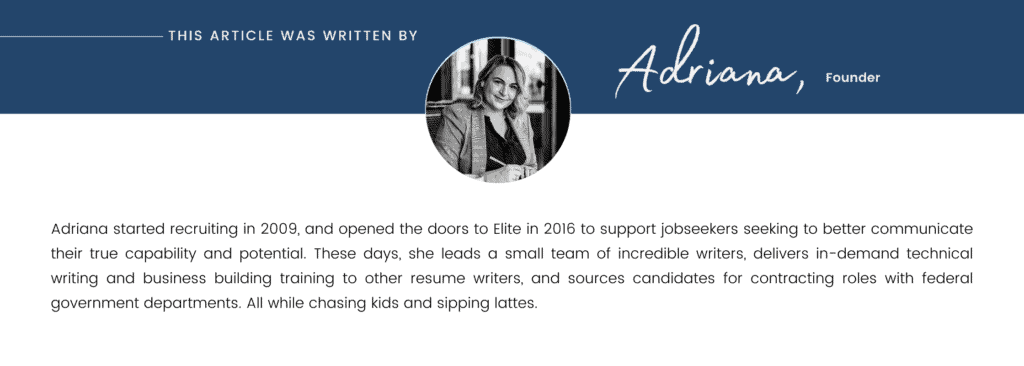 Adriana Modersitzki
Adriana Modersitzki

If you’re a teenager getting ready to apply for your first job, you might be feeling a little worried about how to write a resume when you have no experience.
You’re in the right place. Let’s work it out together because once you do find that first job, you’ll be on your way to earning your own money, finding more independence, and making some new friends.
It can be tempting to start sending out resumes in every direction and hope that you’ll eventually get a ‘yes’ from someone. I’d advise against this approach, though. Your first job is what leads to your second job, and onwards from there. So put some thought into what you’re applying for, and pick a job where you’ll be able to put your best foot forward. For example, if you have food allergies, perhaps a job in a café isn’t for you. However, if you love talking to people and are a bit of a foodie, it could be a great match!
It can also be helpful to think a few years forward and see if you can line up your first job in a way that could benefit your future career goals. For example, if you’re planning to finish school and start an apprenticeship, perhaps it would be a good move to reach out to some local tradies in the school holidays and see if they need a labourer. This will get you some real-life, hands-on exposure and potentially some great future connections.
But how do you get there?
Let’s break them down.
Sitting down and staring at a blank page can be confronting, so I’ve written a blog on this specific situation in the past. There is a fantastic, free downloadable template waiting there for you.
In short, you want to showcase your ‘three w’s’.

Volunteer work can be great for this, as can sporting coaches and teachers. If you have a person that you have reported to for something, whether it’s a soccer game or a day at school, ask them! We all have to start somewhere, and if you’re respectful and appreciative, people are often happy to help you with these things. Request a written reference (if possible, on a letterhead with their contact details) so that a potential employer can reach out to if they want to have a chat. As your career progresses, you will find that written references will lose relevance. However, I believe these are a great resource to have for a first job, especially if you’re asking a teacher or coach who might not be readily available for phone calls.
Other referee etiquette to be mindful of includes advising the referee that you have applied for a job, and that they may expect a call. It doesn’t have to be hard.
Try this: “Hi Mr Smith, thanks again for agreeing to be a referee for me. I just wanted to let you know that I interviewed for a job at Boost Juice yesterday, and they might reach out to you. Is that ok?”
As I mentioned above, this is where getting familiar with your strengths, opportunities for improvement, and preferences is helpful. If you’re walking down the street handing out resumes, think before you walk into each store. What would a day in the life look like, for this job? Do I think I’d be happy doing this? Would I have fun? Will it suit my needs and interests? Will I get enough shifts to meet my financial requirements?
Think before rushing into a choice, but also remember that your first job is a learning experience! That’s what it’s all about!
Regarding getting a ‘no’ from a potential employer, at some point, people are going to say no to you. But, the sky won’t fall. I promise. It simply gives you the freedom to move on to your next possibility.
I’ve mentioned in this blog that getting clear on what you’d like to do in your future and your strengths and preferences can be incredibly helpful for decision-making. Journaling is an effective way to do this – at any stage of your career.
What do you need to journal effectively? For me, it’s:
Don’t throw the towel in too quickly if it feels hard or you’re not finding the flow. Journaling is a process, but it’s such a worthwhile one.
This blog is the first in a series about the opportunities to take advantage of, the pitfalls to avoid and the changing priorities to consider when planning and managing your career. If you’re a graduate, you might find Part Two of this series to be particularly insightful. Or if you are a seasoned professional, make sure you read Part Three – Building a Successful Career.
I hope you enjoyed Part One: Finding Your First Job, and I truly hope that you found some great tips on how to write a resume when you have no experience!

We respectfully acknowledge the traditional custodians of the land upon which we live and work, the Ngunnawal people.
We acknowledge and respect their continuing culture and the contribution they make to the life of this city and this region, and extend that same respect to all Aboriginal and Torres Strait Islander people.
4 comments